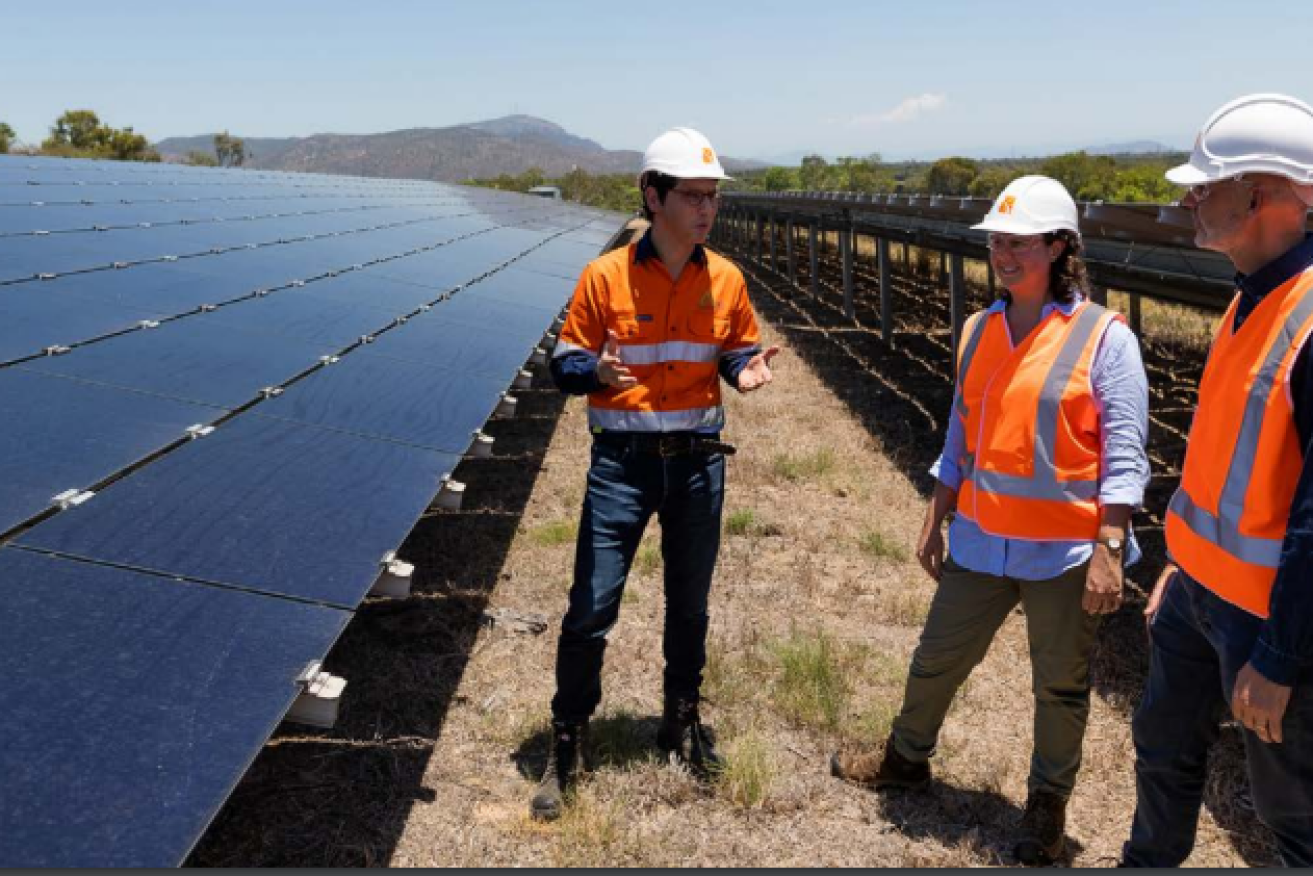Queensland could morph from big polluter to green industry leader: report
A transformation of Queensland’s mining and industrial sector would create major economic opportunities for the state making it a leader in industrial innovation, according to a report from the Climate Council.


The Sun Metals solar farm in Townsville
It said Queensland’s green manufacturing, green ammonia, and “world-beating renewable energy resources” were its hope as the world transitions to a net zero emissions economy.
“The Sunshine State could cash in on the global transition to net zero emissions by cleaning up existing polluting industries including alumina production,” the report said.
“As the world looks for low and zero emissions products and materials, Queensland can meet this global demand with locally made goods, while also unlocking new major export opportunities of critical materials required for the global decarbonisation effort.
Climate Councillor and independent economist Nicki Hutley said Queensland was primed to attract the global investment dollars as investors prioritised clean industries over polluting ones and its trading partners raced to achieve net zero emissions as soon as possible.
But the state is currently a major polluter. There are more than 60 mines and industrial facilities in Queensland that are likely to be impacted by the Federal Government’s Safeguard Mechanism, which provides a baseline for the amount of carbon pollution that can be emitted each year by the nation’s biggest polluters.
Queensland also has several trails and investments aimed at creating green hydrogen and they could not only decarbonise current industries reliant on fossil fuels such as aluminium, but also produce green ammonia and renewable hydrogen export opportunities if scaled up.
The State Government’s $5 billion decision to buy and develop the CopperString project in north Queensland is also considered a key to providing the infrastructure needed to open up renewable generation as well as provide energy for the development of mineral deposits.
There were also massive renewable projects slated for development which could make former mining town Collinsville a major site for solar and wind farms.
A north Queensland Super Hub has been touted to generate more than 10 gigawatts of renewable energy and Sun Metals, in Townsville, is leading the way in decarbonising its facility.
“There is huge and growing global demand for low-emissions products, and the minerals needed to make everything from solar panels to batteries to turbines – Queensland has the resources, huge wind and solar energy potential, and skills to meet this demand,” Hutley said.
“The right policies can give Queensland industry the necessary incentives and support to cut emissions, create new export opportunities, and bring prosperity and jobs to Queensland while tackling climate change.
“Queensland has a long and strong history of heavy industry, mining, and manufacturing, and we have the skilled workers, infrastructure and knowledge needed to thrive in the global transition to net zero.
“Queensland is also blessed with abundant critical minerals that will be essential to the global decarbonisation effort, such as copper, nickel, and zinc. As continuing coal mining and gas extraction threatens efforts to limit harmful climate change, support for sectors like non-fossil fuel mining and clean energy will be essential to protecting the state’s economy and workers.”
Climate Council chief executive Amanda McKenzie said the Federal Government’s reform of the Safeguard Mechanism was a critical opportunity to deliver the right settings that would help future-proof Queensland’s industries, protect Australian manufacturing, and tackle harmful climate change.












